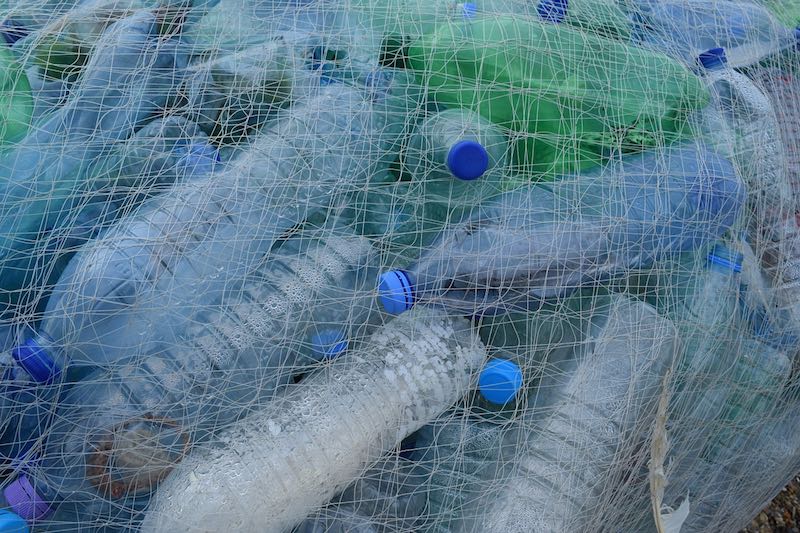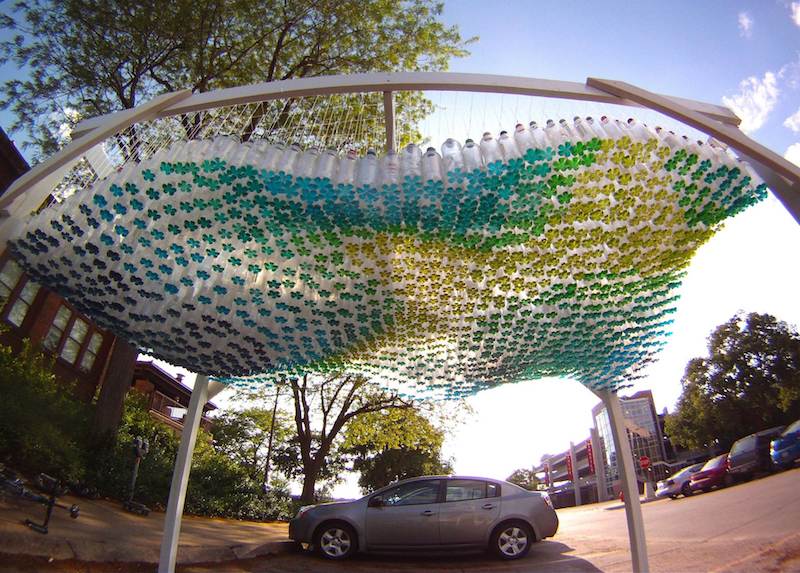8 Reasons not to buy bottled water- A Reality
DO YOU KNOW THE FACTS BEHIND THE BOTTLED WATER YOU ARE CONSUMING?
Buying Bottles has a great environmental impact . A multitude of resources are used fo the production of packaging, labeling and transport of bottles that have a great environmental impact. Although many of the waste generated can be recycled, the fact is that a high percentage (millions of tons) of waste end up abandoned in nature. The bottled water business moves billions annually.
Did you know that Mexico is the country that consumes the most bottled water in the world? The lack of reliability in water systems, the increased access and convenience of bottled water and the lack of a regulatory structure that controls this growing industry are the reasons that lead Mexicans to buy bottled water in large quantities. It is estimated that in Mexico alone, 21 million plastic bottles are thrown away each day. You can get an idea of the environmental disaster that this consumption generates day by day.
But there are also companies that are beginning to become aware of the big problem generated by plastic bottles, for example Selfridges, the second largest chain of department stores in the United Kingdom, which recently announced that it will stop selling water in plastic bottles in the restaurants and their stores. The aim of the measure is to join the fight to avoid contamination by plastic waste in the oceans and to encourage chain customers to reduce their use. In 2014, Selfridges sold 400,000 plastic bottles.
According to one of the largest organizations of Consumers and Users in Spain, OCU, consumption of tap water is a cheaper, greener and healthier option, which is why it suggested that public administrations demand that it be served preferably in restaurants and bars, as long as the taste of the water is adequate.
Plastic is a material that our planet can not digest. I recommend you read this article where you will see the damage that plastic makes to our planet every day.
Reasons not to consume bottled water.
Here you have 7 reasons, although I'm sure you can think of many more, so as not to consume bottled water:
1. Bottled water generates a lot of garbage.
Plastic is the most widely used material for bottling water worldwide. You have to know that only one out of every four plastic bottles is recycled.

The rest of the plastic that is not recycled goes to seas, oceans, rivers and lakes, causing irreparable damage to numerous species of animals. I do not know if you know Plastisfera , a marine ecosystem characterized by the presence of plastic waste in large ocean areas. A source of contamination with a terrible environmental destruction that is almost impossible to recover.
Significantly reduce the waste of plastic containers in this sector, reduce the emissions of greenhouse gases and greenhouse gases associated with the distribution and transport of bottles.
2. Its Costs a Lot.
The price of bottled water can be more than 1,000 times the price of tap water. Mexico is the country that consumes more bottled water in the world, a year consume 234 liters per person.
A liter of bottled water costs 250 times more than a liter of tap water, that is, we pay for 5 liters of bottled water as for 1,000 liters of tap water.
3. It is not healthier than tap water.
Sometimes bottled water is no healthier than tap water. Some brands do not sell mineral water, they simply sell filtered tap water, which you can also do at home and much cheaper.
It is estimated that 40% of all bottled water in the world is taken from municipal water resources, come on, which is tap water .
As a consumer you can not be certain that bottled water is the cleanest and safest to drink. I have even read articles that list a series of diseases that can cause this habit that makes the hair stand on end.
4. Bottling water consumes a lot of natural resources.
Making a bottle of water consumes three times the amount of water that the same water will contain. Approximately 17 million barrels of oil are used for the production of bottles per year. Enough fuel for a million cars for a year.
To obtain a liter of bottled water you need 100 times more electricity than for one liter of tap water.
5. It downplays public supply services.
People who consume bottled water usually do not like the taste of local tap water or because they think it is healthier than tap water, or because they have doubts about its potability. The ideal would be to support and demand from our leaders the improvement in tap water.
6. Drinking water is privatized.
Drinking water is an increasingly scarce resource. The multinationals have set their sights on the "blue gold". More and more are the sources of public drinking water that pass into private hands.
7. Its transport consumes millions of liters of fuel.
An analysis showed that a regular citizen of Slovenia (whose average consumption of bottled water is 56 l / person in a year), who stops drinking bottled water and starts drinking tap water, would reduce its impact by drinking water at least 36.81 kg of CO2 or 95% in four years. In addition, the potential for GHG reduction was also calculated. The surprising thing about the results was discovering that a large part of the emissions originates in the transport between the different suppliers.
After everything you've read, if you decide to try to stop using plastic, I advise you to follow the advice of Merren Tait , a girl who has completely abandoned plastic consumption.
How a plastic bottle is made
The majority of plastics have their origin in Oil. Bottles made from petroleum, have a fairly long process from the extraction of the crude until it ends up being a plastic bottle from the shelf of a store.
The manufacture of plastic follows a different process according to the product that is going to be manufactured. In the case of bottles for water, polyethylene terephthalate (PET), a product obtained from hydrocarbons, is used. Once the PET resin is obtained, the industries through stretch injection and blow molding obtain the final packaging. In the whole process, the one that entails more environmental burdens is that of the purification of terephthalic acid since it emits greenhouse gases.
8. Re-use of Bottles.
Plastic bottles are so abundant in our society that ideas have emerged to reuse them of all kinds. From bird feeders , to plastic brooms , a homemade solar heater for the bravest, or a Christmas tree , a homemade watering can , or a surfboard !

There are some projects that caught our attention due to their originality, a spectacular multicolored roof , a hydroponic garden for the windows , turning them into rope or using them as raw material in a 3D printer .
We share a video with hundreds of ideas:
Alternatives to bottled water.
- Change the PET bottle to a reusable bottle. Invest in a reusable bottle that fits your needs.
- Put a water purifier or filter the tap water, if you do not like the taste.
I recommend the documentary "Enroscados, la batalla del agua" The Story of Bottled water. Issued in Documentos TV: La 2 de RTVE. It will make it very clear to you how is the business behind bottled water:
It is interesting to know which are the types of plastics we are most likely to find.
Buying bottled water we not only waste water and money unnecessarily, sometimes in water with much lower standards compared to the tap, but also contaminate the planet with millions of tons of plastic bottles made from petroleum that take more than 1000 years to completely degrade.
SAVE ENVIRONMENT AND HEALTH














No comments:
Post a Comment
Thanks, Have A Nice Day